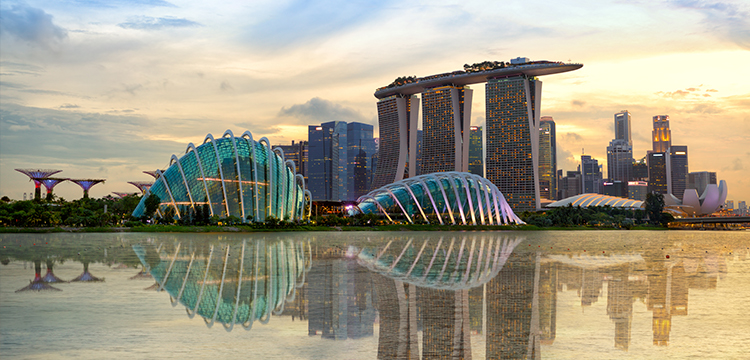The performance of the Singaporean economy has been impressive in recent years and decades. Since it achieved full independence in 1965 (having briefly been part of Malaysia since 1963) it has forged ahead to a position that is the envy of many other nations who achieved the same political status at a similar time. It is now one of the wealthiest nations on the planet with per capita GDP of over $76,000 which puts it ahead of everyone else in the world except for Macau (not a country anyway) and Qatar which leads the way at around $117,000. The progress of Singapore has been built on a strongly-regulated society which is not always to every critics taste, and that has perhaps helped in the implementation of the particularly tough lockdown measures that have been taken by the authorities there.
In health terms, Singapore has experienced a reasonably 'good' pandemic, at least in the early days. Early on it was praised for its actions but a significant outbreak amongst migrant workers in April forced the country to tighten its controls. For a time, it then became the worst affected nation in the region. This also highlighted the risk, experienced by many other countries around the globe, of the virus running amok amongst those living in overcrowded accommodation with limited prospects of taking themselves out of harm's way. That said, its health statistics are somewhat nuanced. Although so far 41,473 cases have been identified in Singapore, of these 26 people have died, a very small relative rate by international standards. However, the problem still remains mainly one that is linked to the migrant worker population according to government sources. Of 142 new cases announced on 19 June, 'the vast majority' are from Work Permit holders residing in foreign worker dormitories.
Social distancing measures have been progressively eased since June 2 and according to the Health Minister, Gan Kim Yong, the number of new Covid cases has remained 'under control', a statement that is supported by a look at the latest graphs for case numbers which show a marked spike in mid-April, a progressive downwards trend in May and a further dropping-off in June which continues even after lockdown was eased. Nevertheless Mr Yong urges caution, saying that these encouraging signs should not be taken for granted. That said, restaurants, cafes, retail outlets and gyms have now been opened up though those employees who are able to should continue to work from home. Schools will reopen on 29 June.
Economic predictions are in the short-term gloomy but no worse than in many other countries and in some cases better. Analysts predict a fall in GDP of 7% this year, the biggest downturn since independence. They also predict that the re-opening of the economy will release pent up consumer demand and this will lead to an initial spending splurge. However, they then foresee a mini rollercoaster ride with some economic ups and downs after this first phase. Border controls will remain for a time, keeping tourist revenues low for a while yet. They have been particularly tough and those long-term residents who were out of the country when the pandemic erupted require government approval to come back in and a number have been stranded abroad for months. However, for people in this category the rules have now been relaxed somewhat.
As a regional economic powerhouse and an attractive role model especially for smaller nation states who wish to become major players on a global scale, Singapore's route out of lockdown will be an interesting case study for others. As the country seeks to manage its way carefully and gradually out of lockdown towards a form of economic recovery it might tell us a great deal about just what the direction of travel should be for all of us and how near or how far we are away from returning to a form of normality.
Wayne Bartlett is an author for accountingcpd. To see his courses, click here.

You need to sign in or register before you can add a contribution.